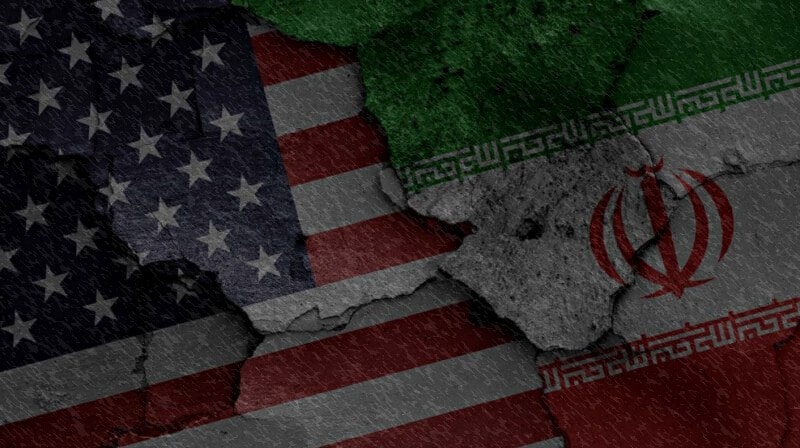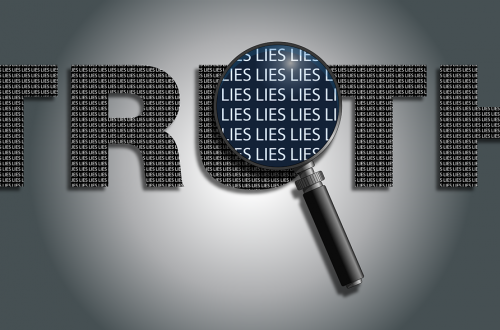Why is Iran Provoking Trump?
Tehran’s mullahs need a face-saving process to return to the negotiating table with the “Great Satan”


By Heshmat Alavi
Once again, Washington is engulfed with the brouhaha of war. In response to military provocations by Iran’s regime, U.S. President Donald Trump recently ordered airstrikes, to only call them off “10 minutes” short of the final go.
The slate of malign activities by Iran has been growing significantly recently. Tehran is now in clear violation of the 2015 nuclear deal – known as the Joint Comprehensive Plan of Action (JCPOA) – by surpassing the 300 kilogram limit imposed on its low enriched uranium stockpile; launching assaults targeting oil tankers near the strategic Strait of Hormuz, according to the U.S. administration; using drones from Yemen to target civilian airports in southern Saudi Arabia and even from Iraq against the Kingdom’s oil facilities. To top the list, Iran’s Revolutionary Guards (IRGC) downed a U.S. drone flying in international airspace over the Gulf of Oman, according to Washington.
Yet going against common mentality, Iran is not looking to start a war with the U.S. The end result is obvious for everyone, especially those making the decisions in Tehran. In fact, the mullahs are seeking to establish high ground to thus claim they are entering talks from an advantage point.
Merely hours following Trump’s new orders calling off the U.S. airstrikes, Iranian regime officials were ready at their podiums to quickly claim success in defeating the Americans.
“The enemies also know that if they start a war, they will not end it,” boasted Ali Akbari, one of the Friday prayer leaders in Iran’s capital Tehran. Emboldened after not being attacked in retaliation, General Amir Hajizadeh, a senior IRGC official, was thumping his chest about how their units could have “easily” shot down another U.S aircraft, referring to a P-8 recon plane with around 35 on board at the time.
This would seem ideal for Iran, yet the past year or so have been far from it. The Trump administration has been able to exit the JCPOA and there is no sign of true isolation, especially considering the exodus of a large number of international companies from Iran. While European leaders may be bickering and the Iranians claiming to defy Washington’s “hard-hitting” measures, money talks. For example, trade between Germany and Iran has decreased by nearly 50 percent in the past year.
Iran’s GDP will be contracting by six percent, according to estimates provided by the International Monetary Fund, as the country’s inflation is hovering around 50 percent. Furthermore, Washington has been very capable of nosediving Iran’s oil exports from 2.5 million barrels per day in May of last year to less than 300,000 bpd in June.
All the while, U.S. Secretary of State Mike Pompeo has continuously emphasized on 12 demands that Tehran needs to meet before a new agreement can be signed with Washington. This accord, however, would address all of the mullahs’ malign activities, including regional meddling, ballistic missile development and proliferation, support for terrorist groups and more.
Therefore, we can conclude that the status quo is completely against Iran’s interests and the regime actually has much more to gain in negotiating with the U.S. Tehran refused talk with the Obama administration for years until the sanctions began taking a serious toll in 2012. For the time being, Iran is attempting to drive a rift between the Europeans and the U.S. in order to buy time and live out Trump’s first term, as described by various analysts. However, it’s easier said than done.
This argument loses speed with U.S. President Donald Trump reiterating he has no rush in negotiating with Iran, knowing sanctions are already biting and vowing to only raise the bar. With Iran publicly and officially violating the JCPOA on July 1 and promising further measures on July 8, this becomes even more certain.
Already humiliated, Tehran has no choice but to play all its cards before succumbing to any talks. This is where Iran’s proxies come in to play.
Thanks to the West’s appeasement approach with Iran during the past four decades, Tehran has been able to establish a network of proxy forces throughout the region. Now, we are witnessing extremists in Iraq and Yemen launch attacks against U.S. allies, disrupting regional stability while placing very little forces and assets in danger through carefully calibrated “hit-and-run” style assaults.
As we speak, Iran has surpassed the uranium enrichment threshold. This is a flagrant breach of the JCPOA and Iran is pledging to launch a second phase of decreasing its commitments to the accord on July 8.
This is a risky gamble for Tehran’s mullahs. While portraying a bold and defying portrait at home, the regime knows they are making it even more difficult for Europe, Russia and China to remain patient and respect the JCPOA.
Here is where many Western analysts fail to continue comprehending the “logic” behind the mullahs ruling Iran.
This regime understands better than anyone how it lacks the popular support any normal government needs to remain in power. Relying on a very small base and through its grip on security forces imposing heavy social crackdown, the regime is walking a fine line and cannot portray a weak image. Otherwise, an already dissatisfied society will erupt once again as the Dec 2017 / Jan 2018 uprising took the regime, and the world, by surprise.
That is why we are constantly witnessing various IRGC commanders repeat threats against the U.S. while Operation Praying Mantis – when President Reagan ordered a strike that destroyed half of Iran’s navy back in 1988 in less than a day – is fresh in their minds.
Sanctions are working now and they were working even during the Obama tenure. If the previous U.S. administration maintained its sanctions against Iran for another six months, the mullahs’ economy would have literally crumbled in 2013. Another mistake by the Obama team was providing concessions to Tehran when this regime was completely cornered.
Today we have a completely new White House. And we should keep in mind that Trump is not Obama and has no intentions of providing any concessions to Iran’s mullahs. Despite the fact that Trump says he merely wants a non-nuclear Iran, Pompeo’s 12 conditions have never been officially put aside.
While the U.S. President has continuously expressed his readiness for talks, this is Iran that continues down the path of malign measures. Illogical as it may seem, they have no other choice.
The turbulent road Tehran’s mullahs have steered into will only become more difficult, with thunderstorms in the forecast.













5 Comments
stevor
Iran isn’t provoking Trump.
It’s the satanic rothschild zionists who doing False Flag events and blaming Iran because for FIFTY YEARS israel has been trying to get WWIII started by getting the USA to have all OUR kids die since we’re “goy” and only meant to “serve” them.
Sharon murray
Love your work , you are amazingly thorough
Trish Briney
The oil tankers attack was on Japanese news and they said that they weren’t attacked by Iran. That Iran rescued them and that the attacks came from up in the sky. They said the mine that is shown on the us news didn’t hit them. He is correct this information he gave you is accurate and well known among middle eastern countries
Trish Briney
I absolutely love your work. Great stuff and well worth keeping up with what you do
a.hall
The UN should Sanction America for Trump breaking the JCPOA Iran Nuclear Agreement. US Sanctions are Illegal because Iran hasn`t broken the Agreement